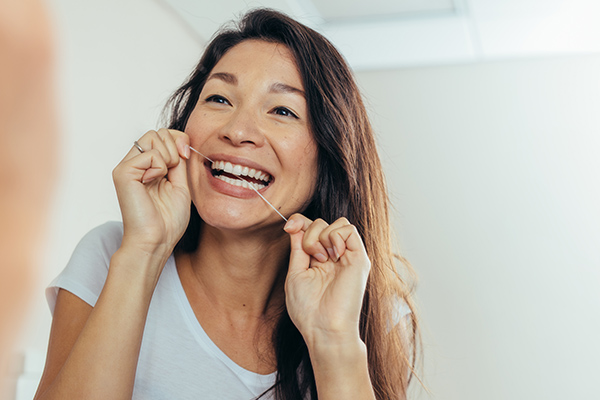 During a visit to the general dentistry office, the dental professional will typically emphasize the importance of flossing. If you tend to forget to floss every day or have trouble with the process, you are not alone. The time and effort required to thread the floss between each tooth and remove plaque and food particles discourage many people from flossing regularly.
During a visit to the general dentistry office, the dental professional will typically emphasize the importance of flossing. If you tend to forget to floss every day or have trouble with the process, you are not alone. The time and effort required to thread the floss between each tooth and remove plaque and food particles discourage many people from flossing regularly.
Tips for flossing
The following are helpful tips from the general dentist to make flossing easier and convenient:
Choose the most suitable floss
Flosses come in a wide variety of shapes and sizes. If one product is too tiresome or difficult to use, patients can switch to another until they find the most suitable one. For those having trouble choosing the correct floss or flossing product to meet their specific needs, the
general dentist can help select a product and show how to floss correctly.
Some of the flossing products to consider include:
Unwaxed Floss – If getting the floss between the teeth and removing it is not an issue, unwaxed floss is a good option.
Waxed Floss – Waxed floss is preferred by most people because it is convenient to reach between teeth and move up and down to loosen and remove plaque and food debris.
Floss Tape – Floss tape is a larger kind of floss ideal for people with gaps between their teeth. Depending on the patient’s preferences, they can get waxed or unwaxed floss for this type of floss.
Floss Picks – Floss picks are made up of a handle, and two prongs with a small length of floss threaded between them. This floss is excellent for reaching back teeth and people who have difficulty getting floss between their teeth.
Floss Threader – Floss threaders are great for those who have braces, bridges, or other dental equipment that makes flossing difficult.
Floss at least once daily
When it comes to flossing, the first step is to choose flossing tools, but precision and meticulousness are equally important. Flossing in the morning might not be convenient for those who sleep through alarms and wake up late. Flossing in the evening or before bed may be an option in this case. Patients can floss at any time, but it is crucial to floss at least once every 24 hours.
Do not be overly concerned about minor gum and teeth soreness
Gingivitis and periodontal disease are both characterized by bleeding, painful gums. However, patients who have only recently started flossing may feel some mild bleeding and pain after flossing. This is very normal. If gum pain and bleeding persist after flossing every day for a few weeks, it is time to make a general dentistry appointment with the dentist for an examination to determine the cause. If the dentist discovers an issue, they will devise a treatment plan. If it is only a matter of flossing technique, the dentist will provide tips on flossing correctly. See more about
Teeth cleaning.


